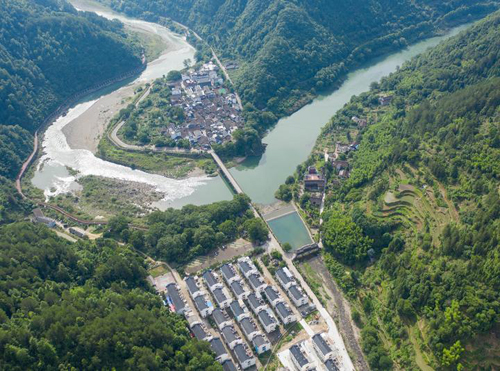Lishui's practice in achieving ecological value
Lishui in East China's Zhejiang province has long been known for its superior ecological environment. The city's implementation of the "Two Mountains" theory, which states that lucid waters and lush mountains are invaluable assets, has never stopped.
In May last year, Datian village in Lishui's Suichang county, with its beautiful tea gardens, bamboo forests and streams, got its own price tag: the country's first village-level GEP (gross ecosystem product) accounting report showed that in 2018, the village's GEP was about 160 million yuan ($22.87 million).

Dajun town in Jingning She autonomous county, Lishui [Photo/lsnews.com.cn]
Based on the GEP evaluation, Lishui is promoting government purchase and market transactions of ecological products. In December 2019, Jingning She autonomous county, based on Dajun's annual GEP increase in 2018, gave the town 1.88 million yuan as an ecological value-added reward for realizing the government procurement of ecological products.
Subsequently, Yunhe, Songyang and other places also brought in measures for government procurement of ecological products.
As China's first national pilot city for realizing the value of ecological products, Lishui has solid foundations in generating ecological value.
It has developed regional public brands, including Lishui Shangeng for agricultural products, Lishui Shanju for homestays, and Lishui Shanjing for scenic spots.
By the end of 2019, 977 agricultural enterprises in Lishui had joined the Lishui Shangeng brand, which achieved annual sales of 8.44 billion yuan and an average premium rate of over 30 percent in 2019.
Lishui also took the initiative in integrating into the Yangtze River Delta market. In September 2019, a special high-speed train between Shanghai and Lishui was opened. During the trial operations, nearly 10,000 Shanghai tourists took the train to Lishui.

 Print
Print Mail
Mail
 Zhejiang Release
Zhejiang Release Zhejiang News
Zhejiang News